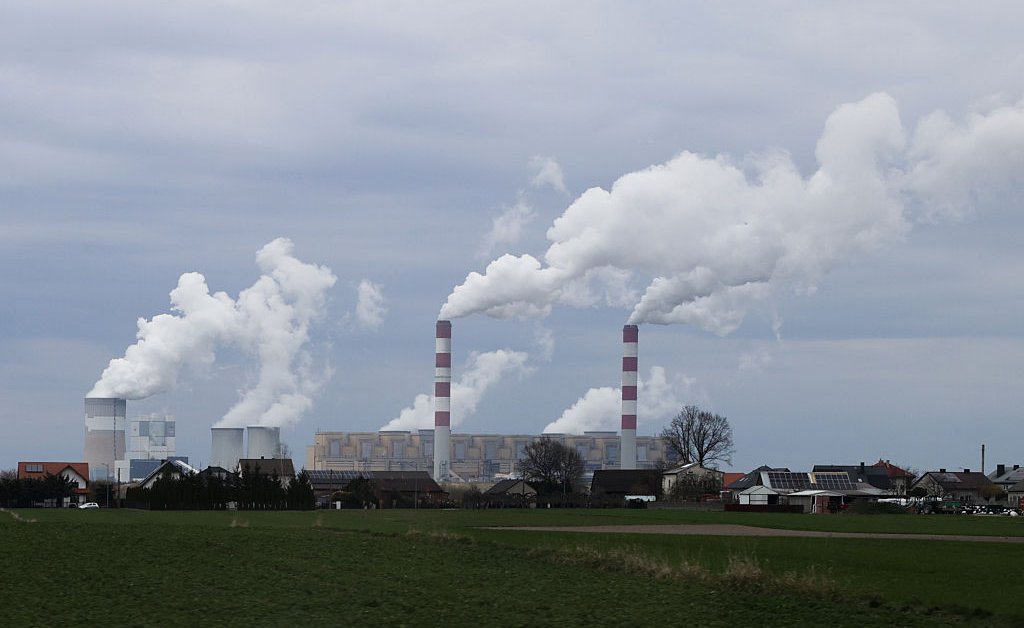Reducing Emissions: A Critical Step To Saving Thousands Of Lives From Air Pollution

Welcome to your ultimate source for breaking news, trending updates, and in-depth stories from around the world. Whether it's politics, technology, entertainment, sports, or lifestyle, we bring you real-time updates that keep you informed and ahead of the curve.
Our team works tirelessly to ensure you never miss a moment. From the latest developments in global events to the most talked-about topics on social media, our news platform is designed to deliver accurate and timely information, all in one place.
Stay in the know and join thousands of readers who trust us for reliable, up-to-date content. Explore our expertly curated articles and dive deeper into the stories that matter to you. Visit Best Website now and be part of the conversation. Don't miss out on the headlines that shape our world!
Table of Contents
Reducing Emissions: A Critical Step to Saving Thousands of Lives from Air Pollution
Air pollution is a silent killer, claiming millions of lives annually. The World Health Organization (WHO) estimates that seven million premature deaths are linked to air pollution each year – a staggering statistic that demands immediate and decisive action. But there's hope. Reducing emissions, a critical component of combating climate change, is also a crucial step towards saving thousands, even millions, of lives from the devastating effects of air pollution.
The Deadly Link Between Emissions and Air Pollution
The connection between emissions and air pollution is undeniable. Burning fossil fuels – coal, oil, and natural gas – for electricity generation, transportation, and industrial processes releases harmful pollutants into the atmosphere. These pollutants, including particulate matter (PM2.5 and PM10), ozone, nitrogen dioxide, and sulfur dioxide, contribute significantly to poor air quality. Inhaling these pollutants leads to a range of respiratory and cardiovascular diseases, including:
- Asthma: Air pollution exacerbates asthma symptoms, leading to increased hospitalizations and emergency room visits.
- Chronic Obstructive Pulmonary Disease (COPD): Long-term exposure to air pollution accelerates the progression of COPD, a debilitating lung disease.
- Lung Cancer: Studies have consistently linked air pollution to an increased risk of lung cancer, even among non-smokers.
- Heart Disease: Air pollution contributes to cardiovascular problems, including heart attacks and strokes.
The Urgent Need for Emission Reduction Strategies
To significantly reduce the health burden of air pollution, we must aggressively pursue emission reduction strategies. These strategies include:
-
Transitioning to Renewable Energy: Shifting away from fossil fuels towards renewable energy sources like solar, wind, and hydro power is paramount. This transition not only reduces greenhouse gas emissions but also dramatically improves air quality. Learn more about the benefits of renewable energy from the .
-
Improving Vehicle Efficiency and Promoting Electric Vehicles: Investing in fuel-efficient vehicles and promoting the adoption of electric vehicles can drastically reduce emissions from the transportation sector. Governments can incentivize this transition through tax breaks and subsidies.
-
Strengthening Industrial Emission Standards: Implementing and enforcing stricter emission standards for industries, particularly those emitting high levels of pollutants, is crucial. This includes investing in cleaner technologies and promoting best practices.
-
Improving Public Transportation: Investing in and improving public transportation systems encourages people to use less polluting modes of transport, leading to a reduction in overall emissions.
-
Planting More Trees: Trees act as natural air filters, absorbing pollutants and improving air quality. Urban greening initiatives are essential for improving air quality in densely populated areas.
The Economic and Social Benefits of Clean Air
Reducing emissions isn't just about saving lives; it also offers substantial economic and social benefits. Cleaner air translates to:
- Reduced healthcare costs: Fewer respiratory and cardiovascular illnesses mean lower healthcare expenditures.
- Increased productivity: Healthier populations are more productive, contributing to economic growth.
- Improved quality of life: Cleaner air leads to a higher quality of life, allowing people to enjoy outdoor activities and live healthier, longer lives.
Call to Action: Breathe Easier, Demand Change
The link between emissions and air pollution-related deaths is clear. We must act now to reduce emissions and protect the health of our communities. Support policies that promote clean energy, sustainable transportation, and stricter emission standards. Demand accountability from governments and industries, and advocate for cleaner air for all. Your voice matters in creating a healthier and more sustainable future. Learn more about how you can get involved in the fight for cleaner air by visiting .

Thank you for visiting our website, your trusted source for the latest updates and in-depth coverage on Reducing Emissions: A Critical Step To Saving Thousands Of Lives From Air Pollution. We're committed to keeping you informed with timely and accurate information to meet your curiosity and needs.
If you have any questions, suggestions, or feedback, we'd love to hear from you. Your insights are valuable to us and help us improve to serve you better. Feel free to reach out through our contact page.
Don't forget to bookmark our website and check back regularly for the latest headlines and trending topics. See you next time, and thank you for being part of our growing community!
Featured Posts
-
 Rome Tennis Swiatek Fonseca And Osakas Road To The Championship
May 08, 2025
Rome Tennis Swiatek Fonseca And Osakas Road To The Championship
May 08, 2025 -
 Meet The 10 Performers Preston And Steves Side Stage Singers At Mmrbq 25
May 08, 2025
Meet The 10 Performers Preston And Steves Side Stage Singers At Mmrbq 25
May 08, 2025 -
 India Pakistan Tensions Rise After Cross Border Missile Incident
May 08, 2025
India Pakistan Tensions Rise After Cross Border Missile Incident
May 08, 2025 -
 North Carolina Frontier Airlines Viral Video Shows Airport Confrontation
May 08, 2025
North Carolina Frontier Airlines Viral Video Shows Airport Confrontation
May 08, 2025 -
 Rdu Airport Chaos Viral Video Exposes Frontier Airlines Agent Dispute
May 08, 2025
Rdu Airport Chaos Viral Video Exposes Frontier Airlines Agent Dispute
May 08, 2025
